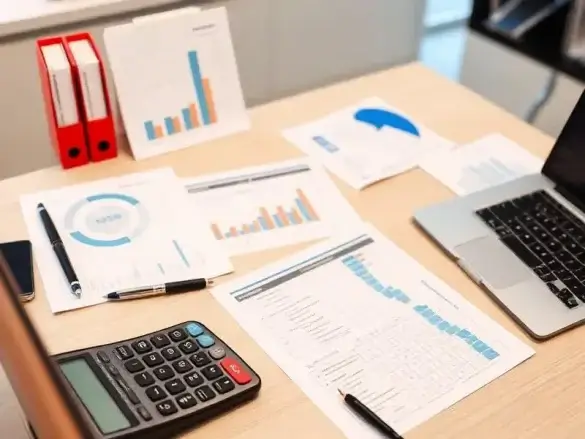Expert Accountant for Self Employed
ZahTax are a team of expert Chartered Certified Accountants for Self-Employed individuals and sole trader businesses. We provide high-quality accounting and tax services tailored to the needs of self-employed professionals. As specialist sole trader tax return accountants based in London and Surrey, we ensure your accounts are accurate, compliant, and filed on time.
- Chartered Certified Accountants
- Fixed Fee Services
- Tax Liability Minimisation

Who is a Sole Trader or Self-Employed Person?
A sole trader, also known as a self-employed individual, is someone who owns and runs their business independently. It’s one of the most popular and straightforward business structures in the UK, offering flexibility and ease of setup for new entrepreneurs. However, being a sole trader also means taking full personal responsibility for the financial health of the business. There is no legal distinction between you and your business, so you’re liable for any debts, losses, and legal obligations the business may incur.
Managing your accounts, expenses, and submitting your sole trader tax return accurately is crucial. Partnering with a qualified Accountant for Self Employed individuals can simplify the process—providing expert support with bookkeeping, tax planning, and HMRC compliance, while ensuring you meet all filing deadlines stress-free.
Benefits of Starting a Business as a Self-Employed Sole Trader
Becoming self-employed and operating as a sole trader is one of the easiest and most flexible ways to start a business in the UK. It’s the simplest business structure, with minimal compliance requirements compared to limited companies. Many first-time entrepreneurs choose this route because of its low cost and ease of setup.

Here are some key benefits of being a sole trader:
- You keep all the profits from your business
- Start-up and running costs are low, making it ideal for new ventures
- Easy to manage and close the business when needed
- Full control over day-to-day operations and decision-making
- Greater privacy, as your financial information is not publicly disclosed
- Easy Accounting and Tax Filing
- Fewer Regulatory Requirements
- Lower accountancy fee cost compared to limited companies
What Taxes Do I Have to Pay as a Sole Trader in the UK?
As a sole trader in the UK, you’re responsible for paying income tax, Class 2 National Insurance, and Class 4 National Insurance on your business profits, if they exceed certain thresholds. These taxes are reported through your sole trader tax return, submitted via the HMRC self-assessment system. Understanding your tax obligations is essential to avoid unexpected bills and penalties. A qualified accountant for self employed individuals can help you calculate your liabilities accurately, claim allowable expenses, and ensure your tax return is filed correctly and on time.
Income Tax and National Insurance Rates for Sole Traders (2025/26)
Income Tax Rates 2025/26
Tax Type
Band / Threshold
Rate
Notes
Income Tax
Up to £12,570
0%
Personal allowance – no tax payable
Income Tax
£12,571 – £50,270
20%
Basic rate band
Income Tax
£50,271 – £125,140
40%
Higher rate band
Income Tax
Over £125,140
45%
Additional rate – no personal allowance available
National Insurance Rates
Class 2 & Class 4 NI contributions
National Insurance
Band / Threshold
Class 2 NICs
Profits over £6,725/year
£3.45 per week
Flat rate if profits exceed threshold
Class 4 NICs
£12,570 – £50,270
6%
Charged on taxable profits
Class 4 NICs
Over £50,270
2%
Charged on profits above this threshold
Key Tax Deadlines for Self employed Taxes
- Paper Tax Return Deadline: 31 October (after the end of the tax year). Example: For the 2024/25 tax year (which ends on 5 April 2025), the paper return deadline is 31 October 2025
- Online Tax Return Deadline - 31 January. Example: For the 2024/25 tax year, the online return must be filed by 31 January 2026
- 31 January – Deadline to submit your online Self Assessment tax return.
- 31 January – Deadline to pay any tax owed for the previous tax year, including the first payment on account (if applicable).
- Late Filing by 1 day: £100 penalty if your return is up to 3 months late; more if it’s later
- Late by 3 Months: Additional Penalty - £10 per day, up to a maximum of £900.
- Late by 6 Months: Further Penalty - The greater of: £300 or 5% of the tax due. This is added on top of the previous penalties.
- Late by 12 Months: Additional Penalty - The greater of £300 or 5% of the tax due. n serious cases (e.g., deliberate concealment), this can increase to 100% of the tax due.
How Zahtax Can Help Self employed Businesses
At ZahTax, we are specialist Accountants for Self Employed individuals, providing expert support tailored to the needs of sole traders across the UK. Whether you’re just starting out or need help staying compliant, our services cover all aspects of sole trader accounting and tax.
We can assist you with:
- Registering your sole trader business with HMRC
- Setting up online accounting software for efficient record-keeping
- Advising on allowable business expenses to maximise your tax savings
- Ongoing support and expert advice on accounting and tax compliance
- Guidance on claiming all legitimate expenses to legally reduce your tax bill
- Preparation of annual sole trader accounts
- Accurate completion and filing of your sole trader Self Assessment tax return
- Calculation of your sole trader tax liability
- Submission of your tax return directly to HMRC, ensuring timely compliance
As a trusted Accountant for Self Employed professionals, we help you focus on running your business while we handle the numbers.
For more information or to book your free consultation, contact us on 020 8191 9583 or email info@zahtaxaccountants7567.live-website.com
Frequently Asked Questions
Get answers to common questions about sole trader tax requirements and our services.
What is the deadline for sole trader tax returns?
The deadline for online self-assessment tax returns is 31st January following the end of the tax year. For the 2023/24 tax year, the deadline is 31st January 2025. Paper returns must be submitted by 31st October.
Do I need to register as a sole trader?
Yes, you must register with HMRC as soon as you start self-employment or by 5th October in your business’s second tax year, whichever is earlier. You can register online through the HMRC website or we can help you with the registration process.
What expenses can I claim as a sole trader?
You can claim expenses that are wholly and exclusively for business purposes, including office costs, travel expenses, equipment, professional fees, insurance, and marketing costs. We can help you identify all allowable expenses to minimize your tax liability.
How much does your sole trader tax service cost?
We offer fixed-fee pricing for transparency. Our sole trader tax return service starts from £299, which includes preparation and submission of your self-assessment, advice on allowable expenses, and ongoing support throughout the year.
What's the difference between sole trader and limited company?
As a sole trader, you and your business are legally the same entity, and you pay income tax and National Insurance on profits. A limited company is a separate legal entity, and you typically pay corporation tax on profits and income tax/NI on salary/dividends. We can advise which structure is most tax-efficient for your situation.
Do I need to keep records as a sole trader?
Yes, you must keep records of your business income and expenses for at least 5 years after the 31st January submission deadline. This includes invoices, receipts, bank statements, and records of business mileage. We can help you set up an efficient record-keeping system.
Can you help with VAT registration?
Yes, we provide complete VAT services including registration, returns, and advice. You must register for VAT if your taxable turnover exceeds £85,000 (2023/24 threshold), but you can also register voluntarily. We’ll assess whether VAT registration would benefit your business.
Company Directors
All company directors are required by law to file an annual tax return with HMRC once a notice to file has been issued.
Directors can receive income from their limited companies in the form of one or more of the following sources: –
- Employment income
- Dividend income
- P11D expenses and benefits
- Interest on the loan given to the company
In addition to the above, directors can also have many other sources of income like normal taxpayers such as:-
- Rental income
- Pension income
- Dividends from other companies etc.
Directors and individuals who are in receipt of any untaxed income must register themselves with HMRC in order to file their self-assessment tax return.
HMRC need to be notified of any liability owed for the current tax year by 5 October following the end of that tax year to avoid any penalties.
Here at Zahtax, we will take the stress off you and advise you on:
- Calculating the tax payable on your income
- How to minimise your payments on account for the following tax year
- Completing your tax return using HMRC approved software
- The amount of the tax liability which needs to be payable to HMRC and when it is due. Also if HMRC deduct too much tax at source, we can arrange for the refund to be credited directly to your bank account.
Please call us on 020 8191 9583 or email us on info@zahtaxaccountants7567.live-website.com for a fixed fee quote.
